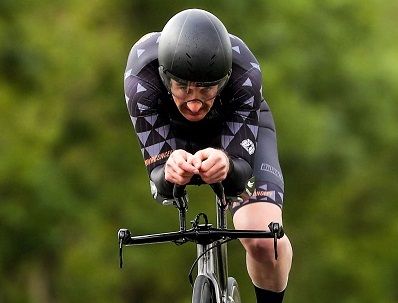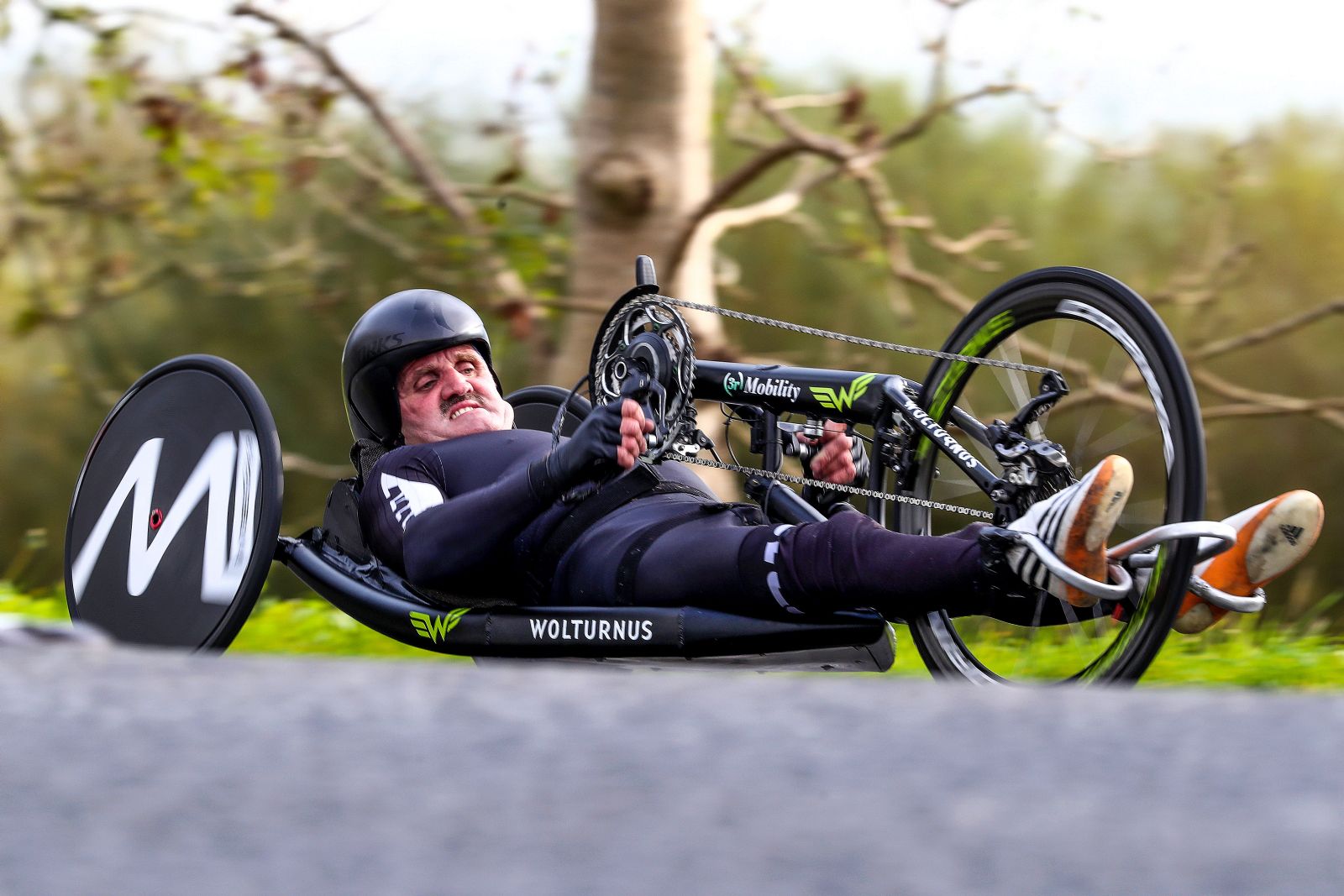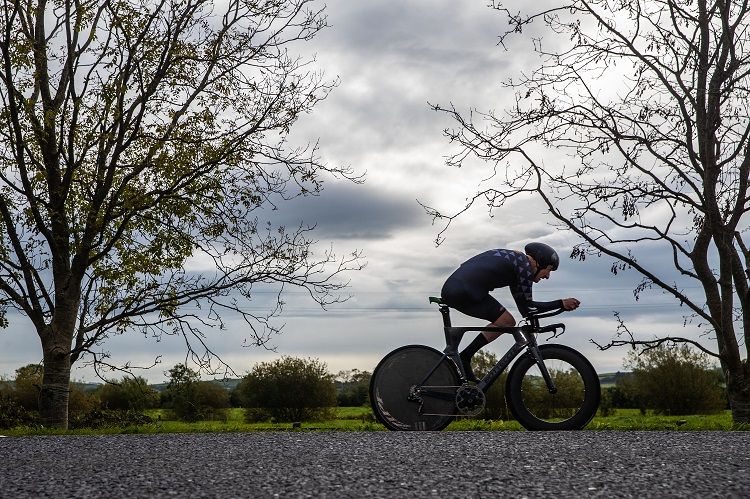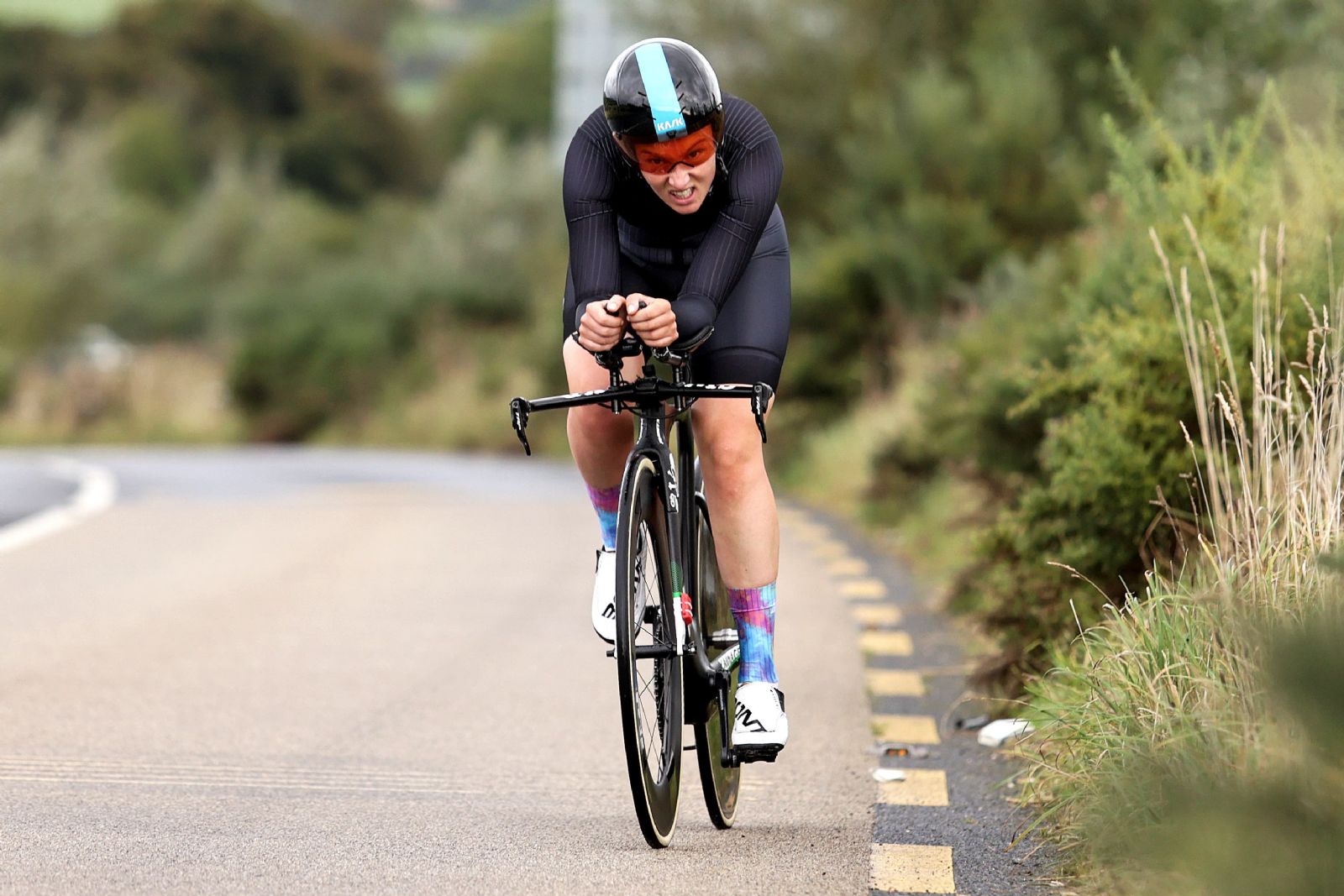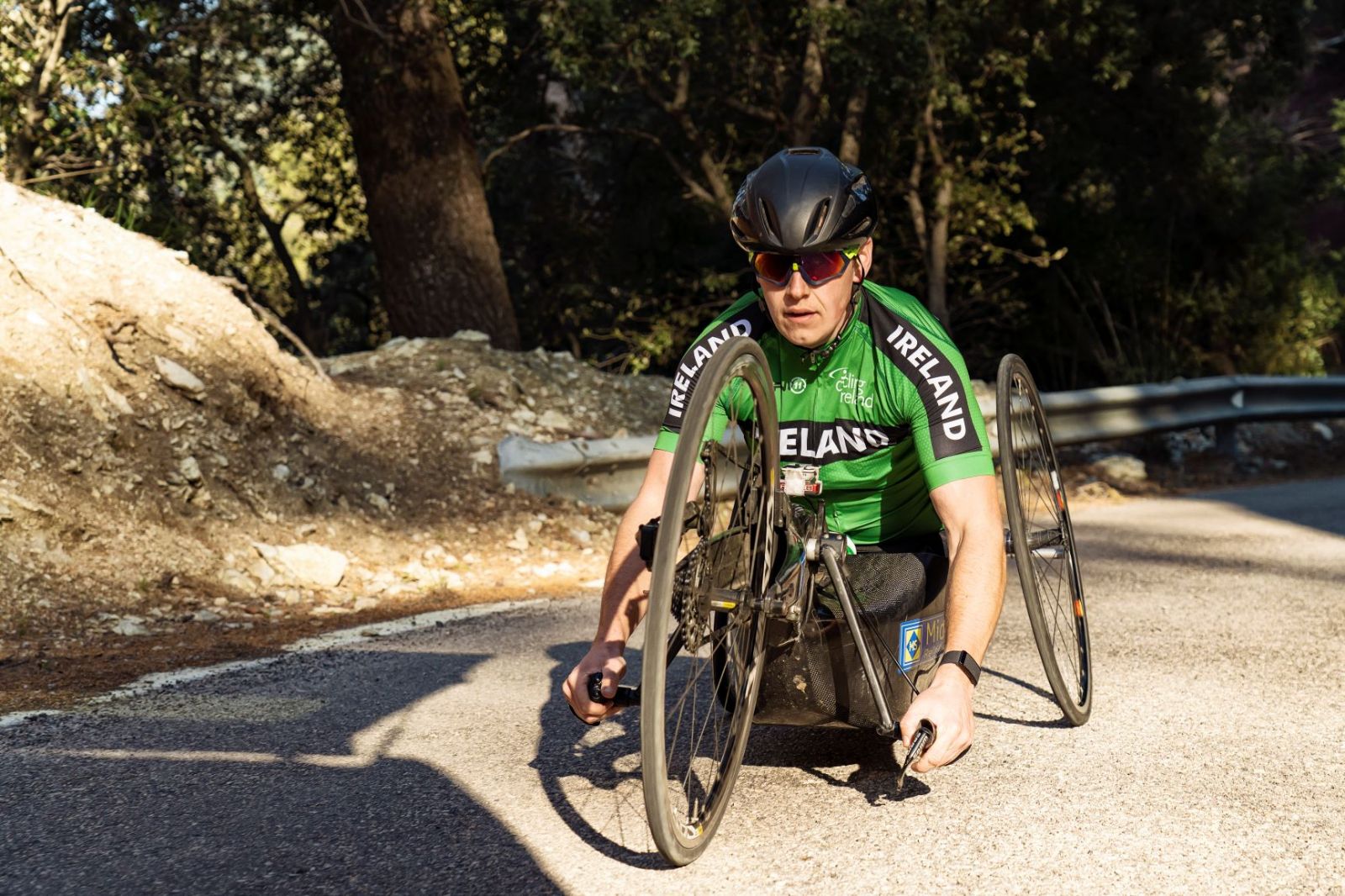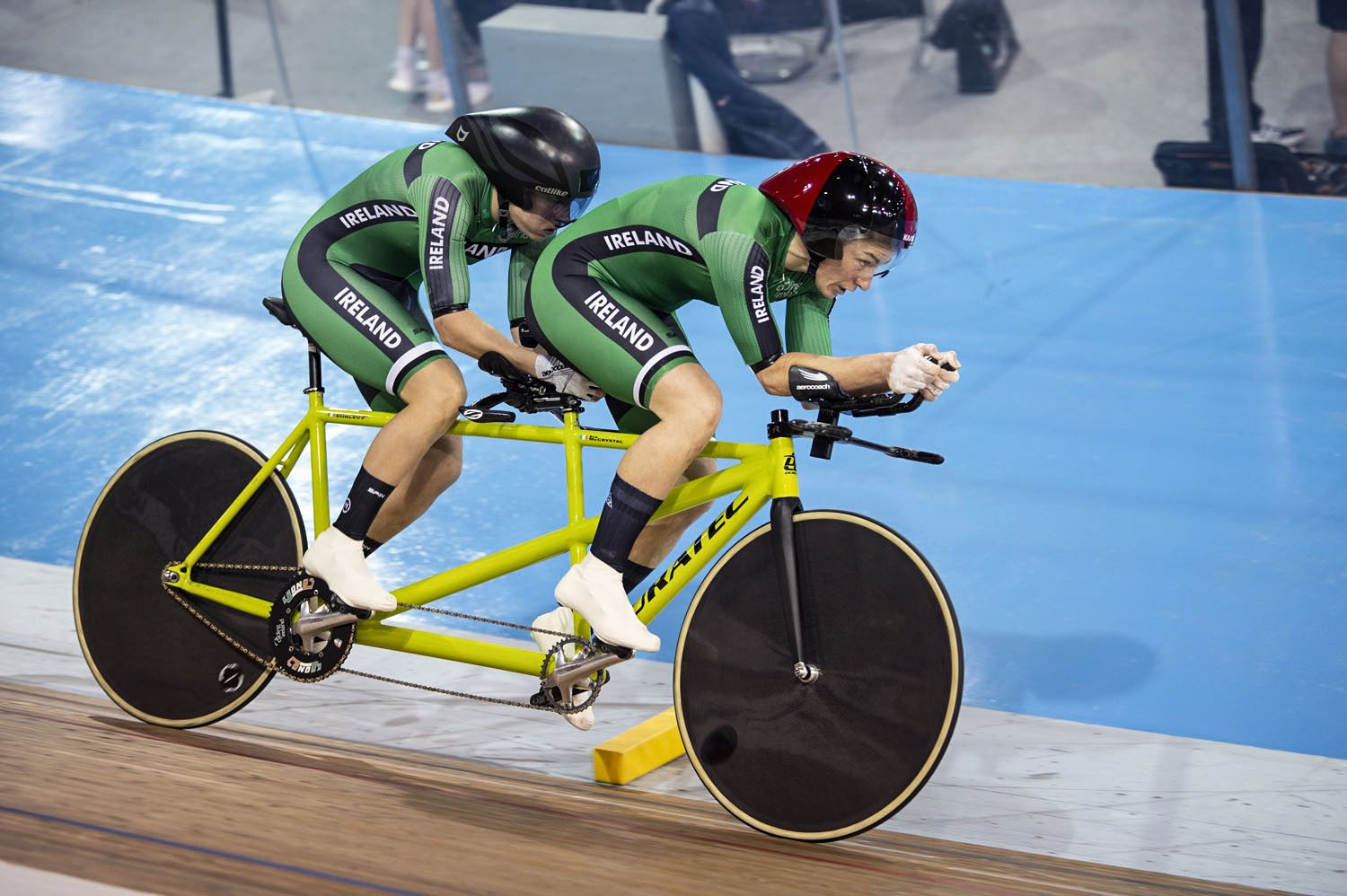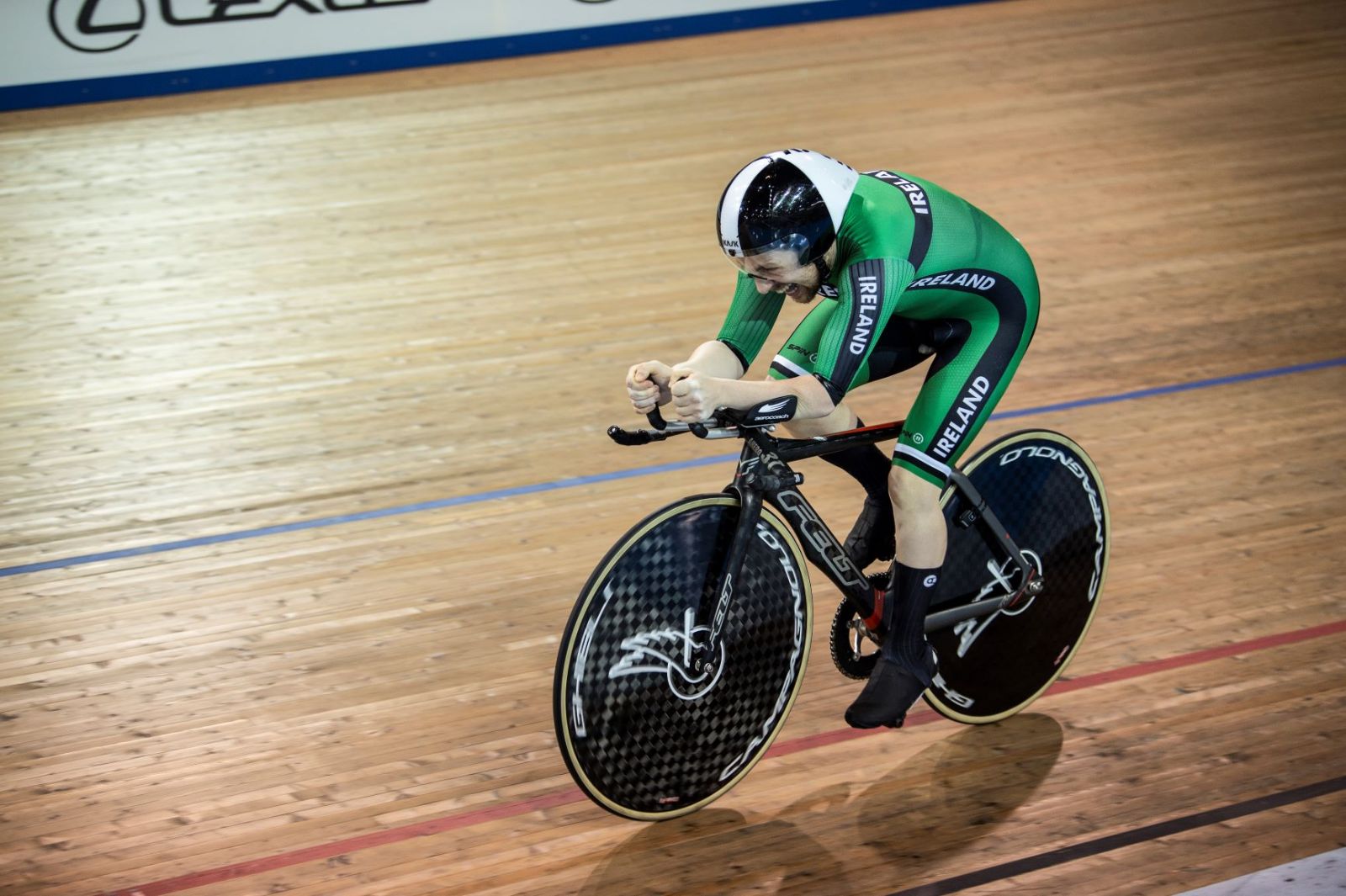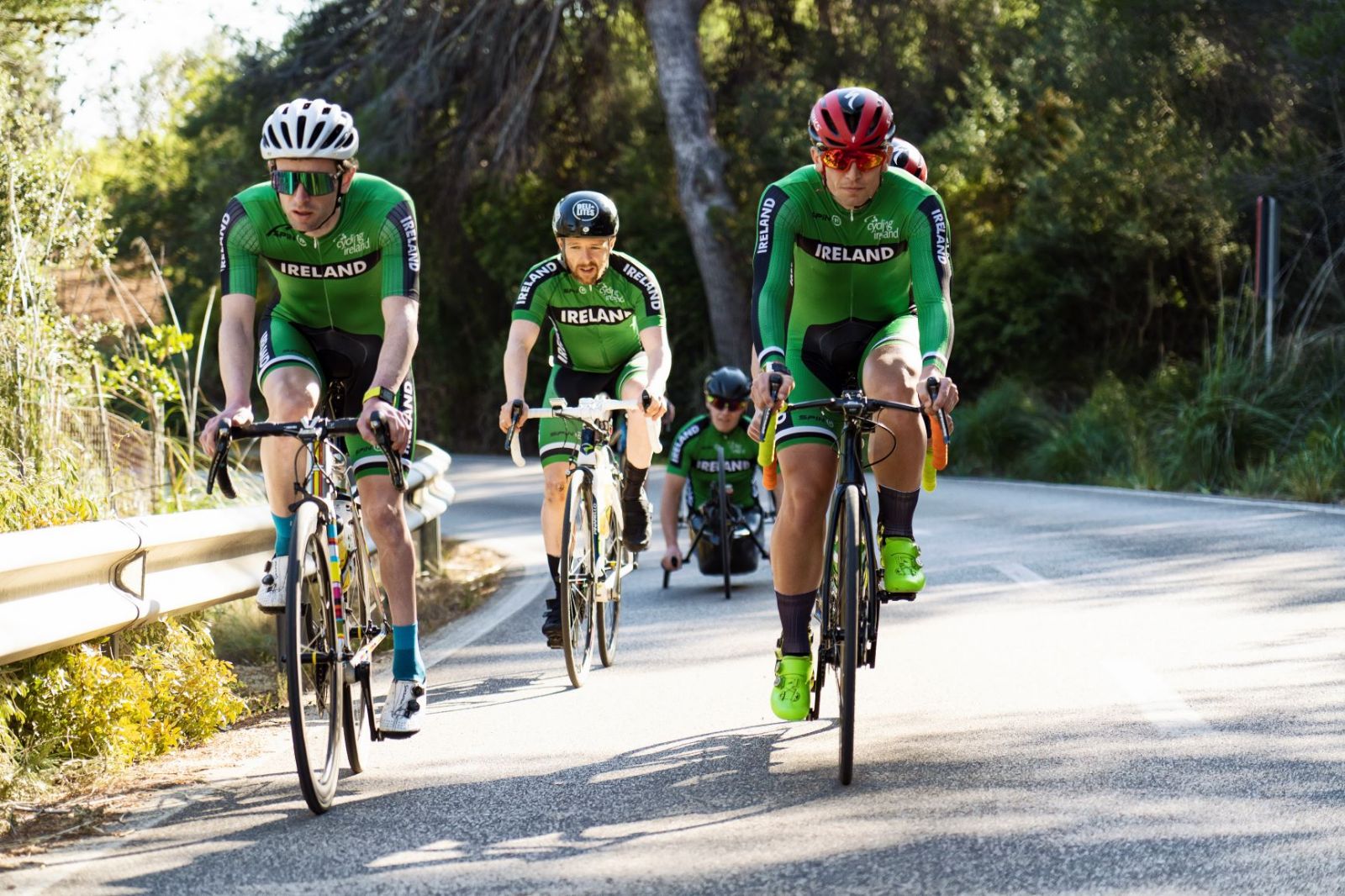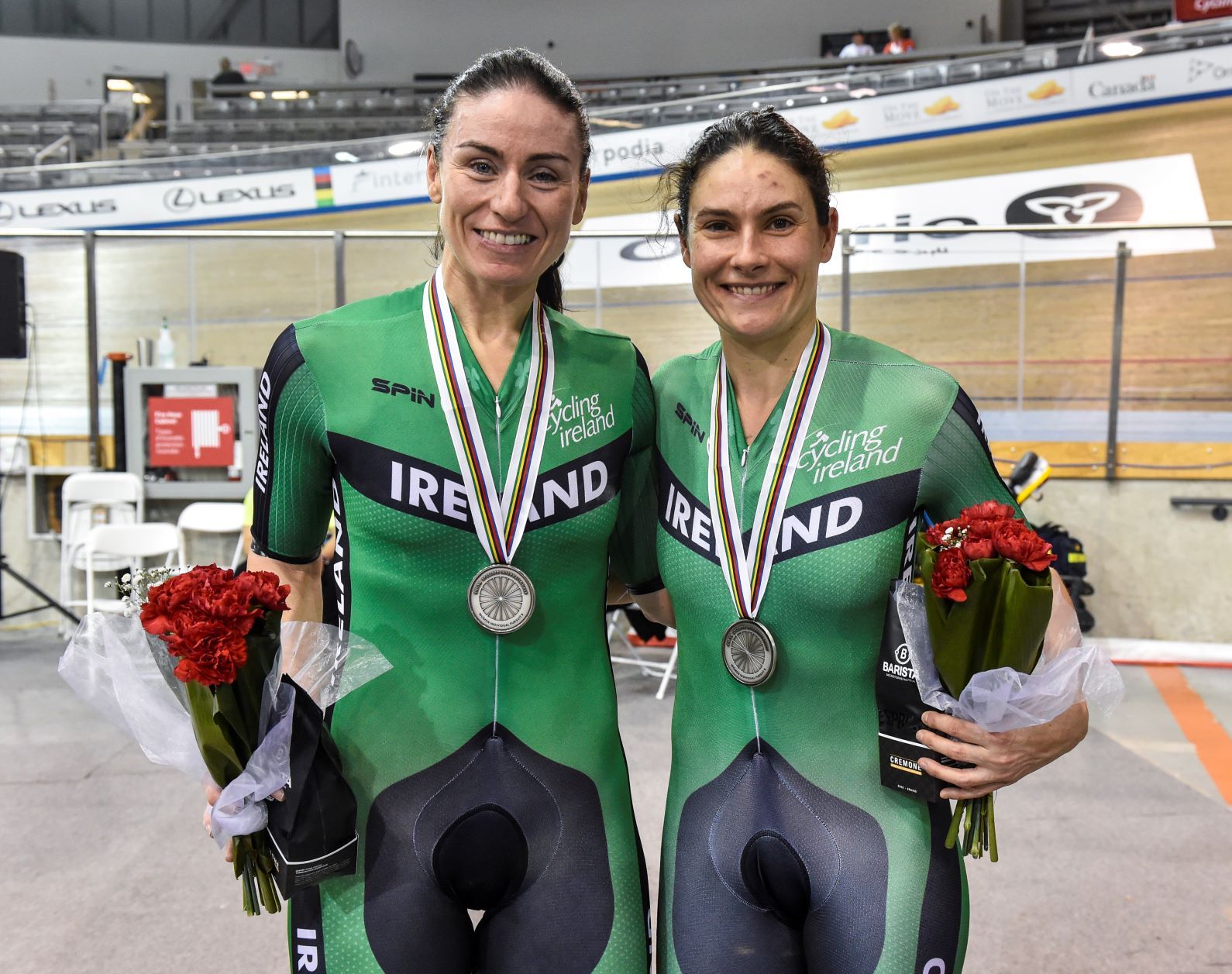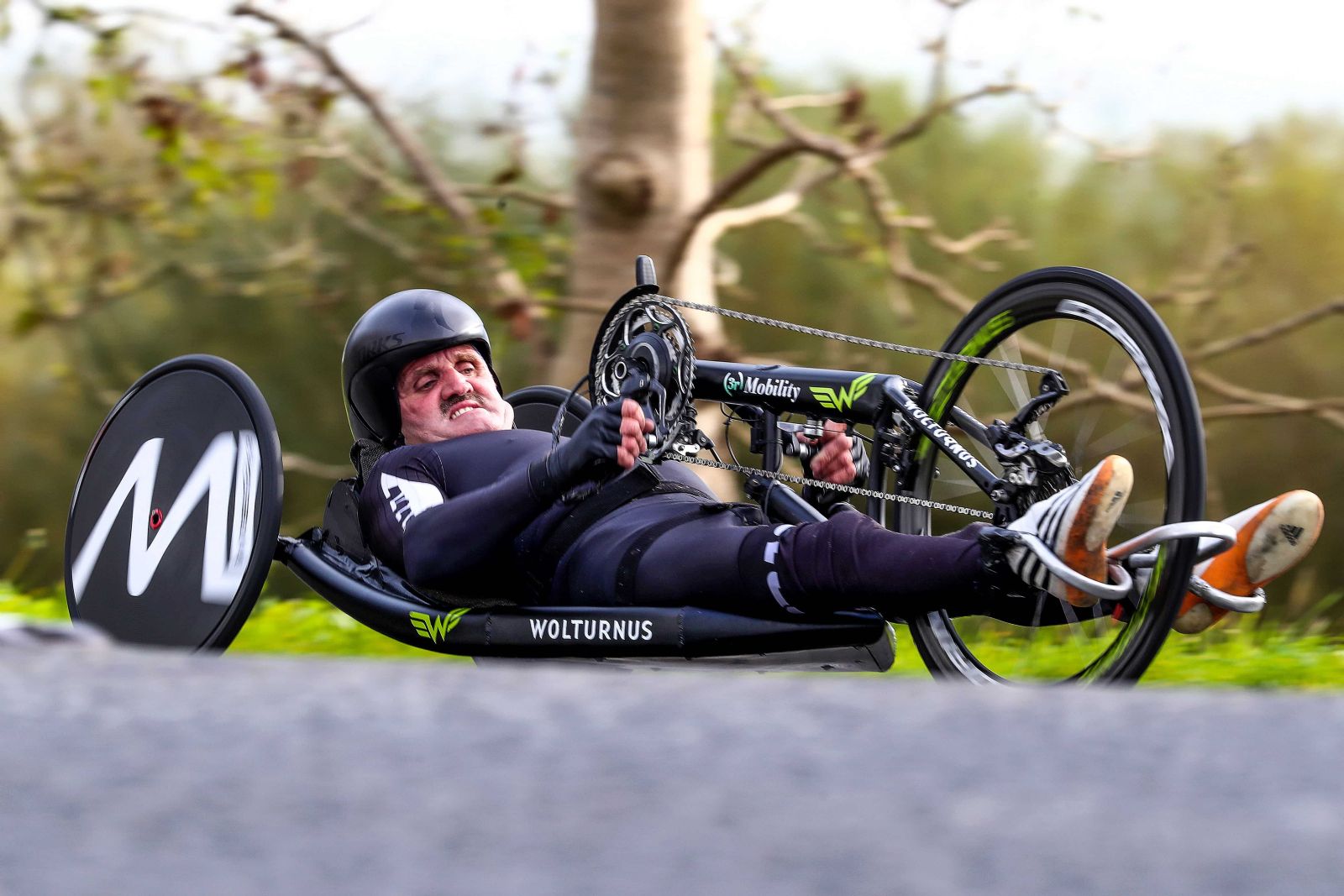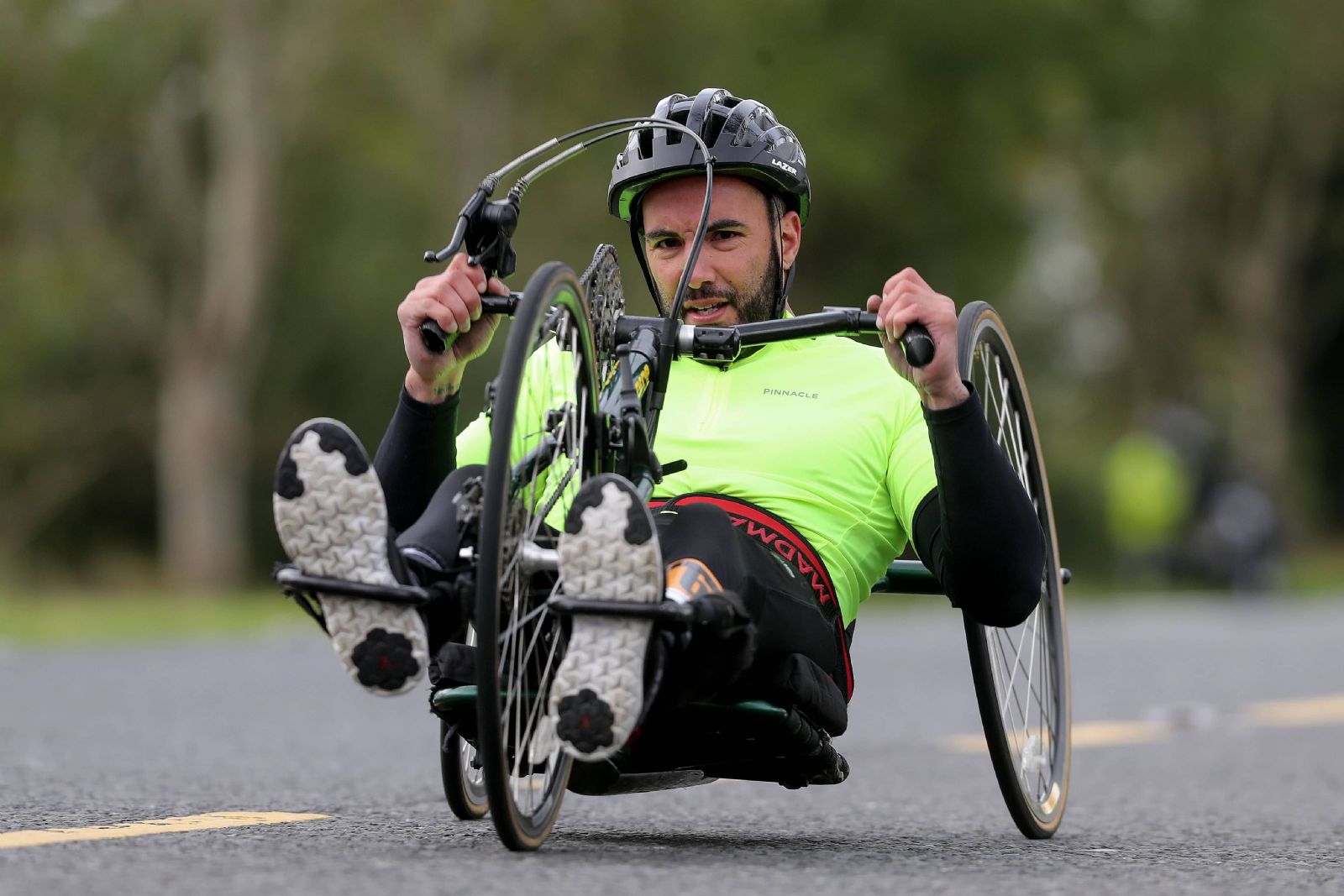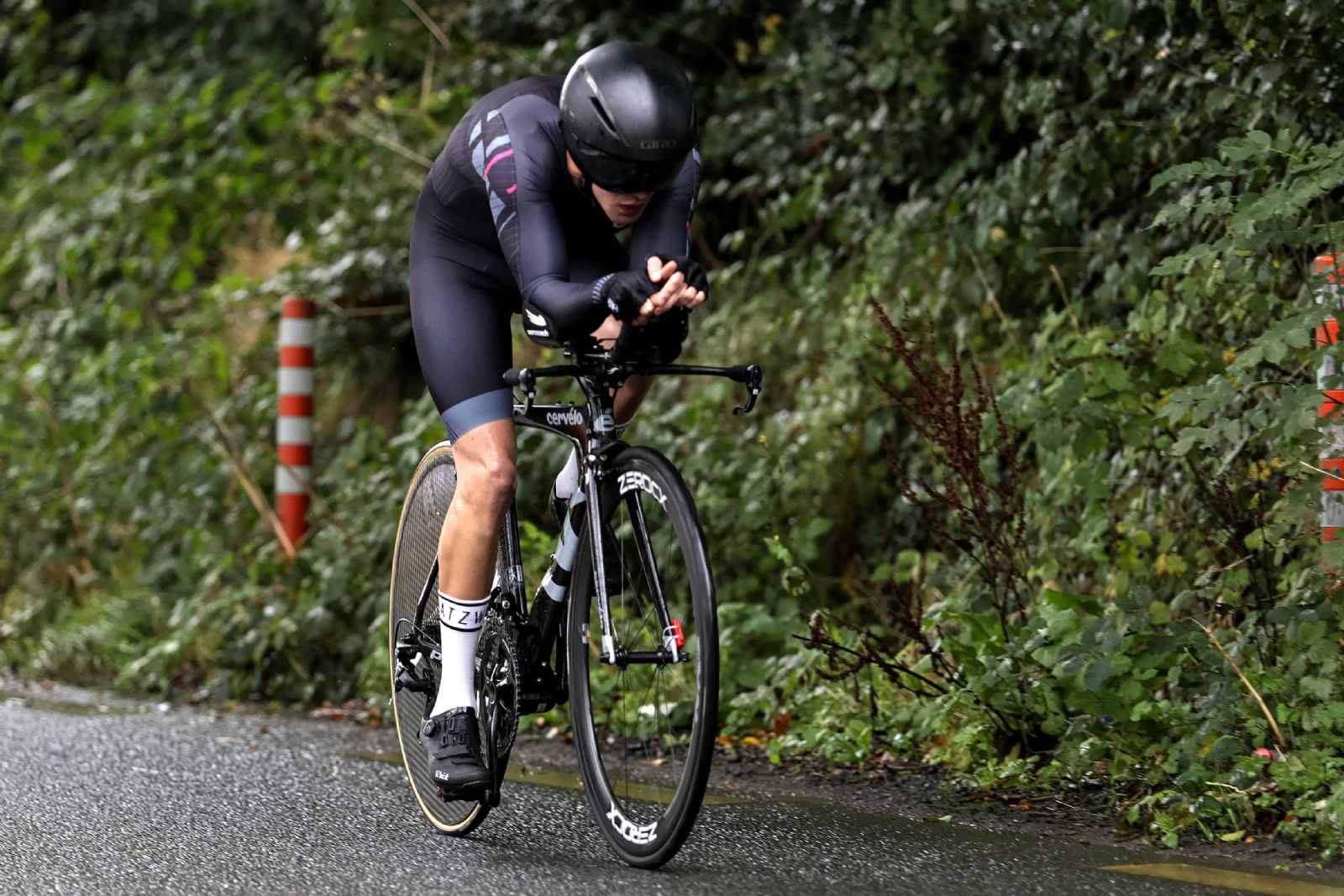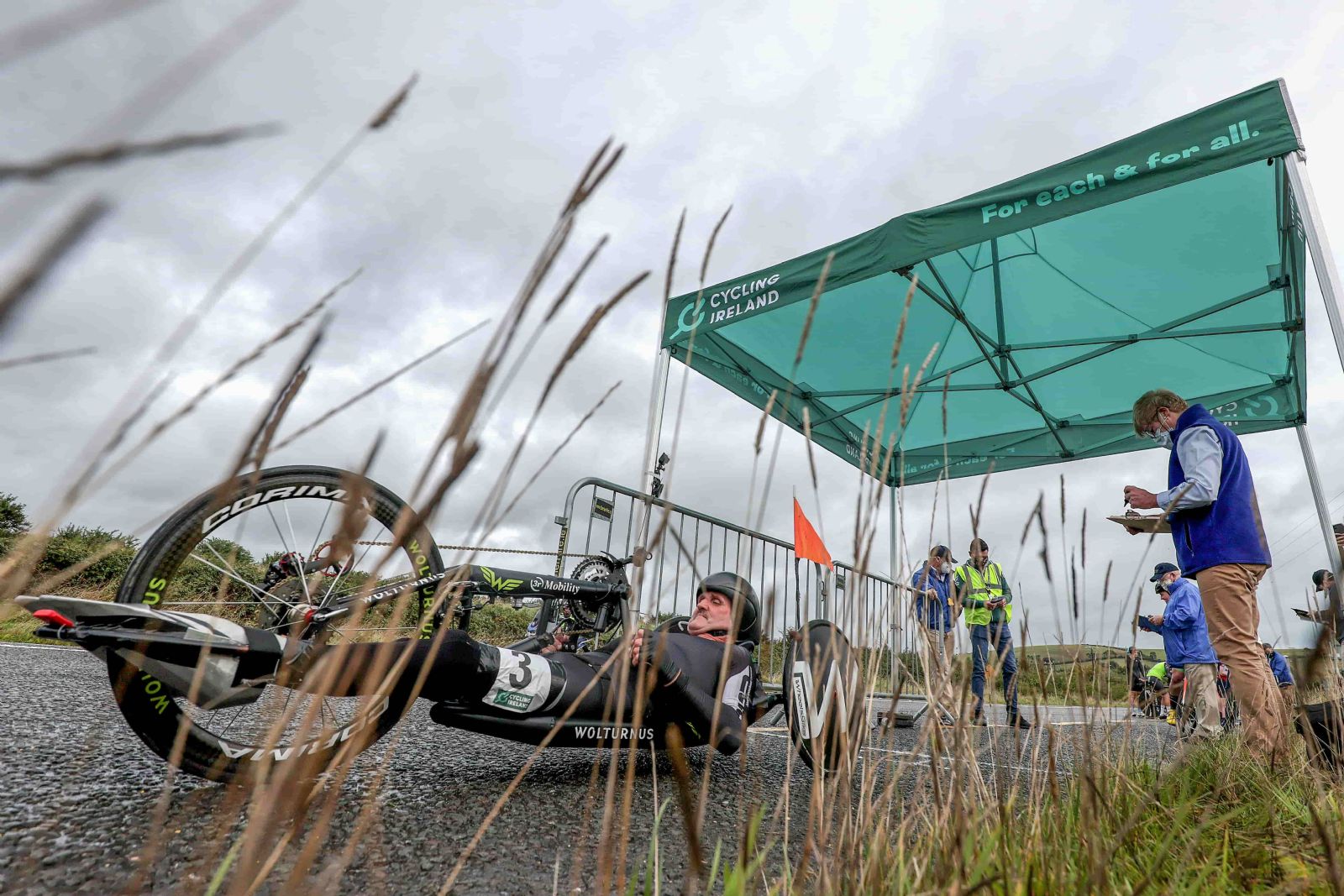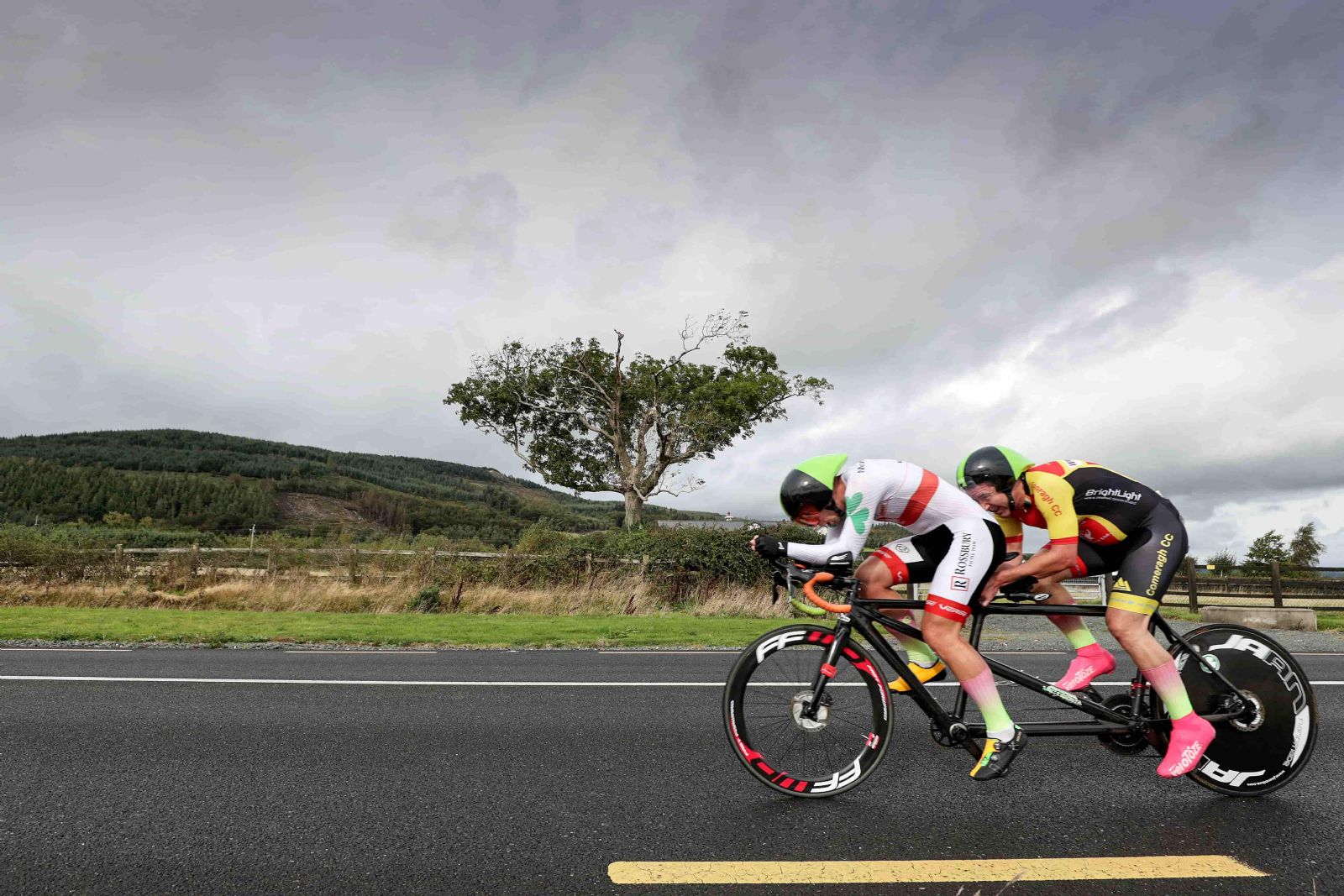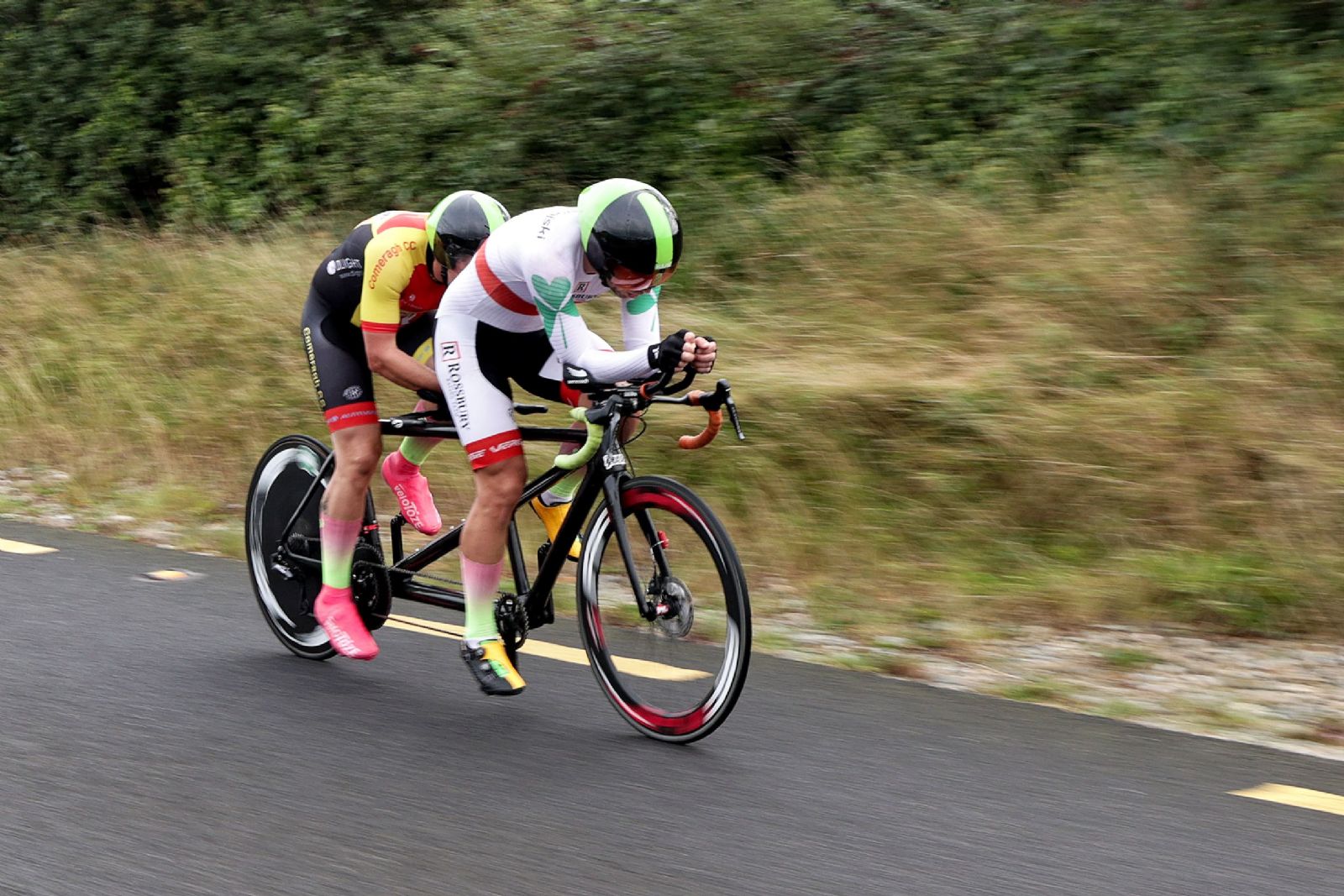Para-cycling (or Paracycling) is the sport of cycling adapted for cyclists who have various disabilities. Para-cycling currently includes individuals with cerebral palsy, visual impairments and physical impairments. Road cyclists compete on handcycles, trikes, tandem bikes or bikes depending on their condition. On the track, cyclists compete on either tandem bikes or bikes.
Paracycling News
View All-
.jpg) 26/07/2024
26/07/2024Paul Watson appointed Commissaire President for Paralympic Games
Read More -
.jpg) 25/07/2024
25/07/2024Team Named For 2024 Paralympic Games
Read More -
 16/07/2024
16/07/2024Para-cycling National Series Round 6 Results
Read More -
 09/07/2024
09/07/2024Para-cycling National Series Gears Up for Round 5
Read More -
 18/06/2024
18/06/20242024 Para-cycling Track National Championships Results
Read More -
 15/06/2024
15/06/2024Vereker and McLaughlin victorious at Para-cycling Road National Championships
Read More
Eligible Impairments
- Hypertonia
- Ataxia
- Athetosis
- Limb Deficiency
- Impaired Muscle Power
- Leg Length Difference
- Impaired Passive Range of Movement
- Vision Impairment
Athletes have an increase in muscle tension and a reduced ability of a muscle to stretch caused by damage to the central nervous system.
Example:
Cerebral palsy, traumatic brain injury, stroke, multiple sclerosis
Athletes have uncoordinated movements caused by damage to the central nervous system
Example:
Cerebral palsy, traumatic brain injury, stroke, multiple sclerosis, spinocerebellar ataxia, Friederichs’ ataxia.
Athletes have continual slow involuntary movements
Example:
Cerebral palsy, traumatic brain injury, stroke
Athletes have total or partial absence of bones or joints as a consequence of trauma or illness or congenital limb deficiency
Example:
Traumatic amputation, amputation due to bone cancer, dysmelia.
Athletes have a health condition that either reduces or eliminates their ability to voluntarily contract their muscles in order to move or to generate force.
Example:
Spinal cord injury (complete or incomplete, tetra-or paraplegia or paraparesis), muscular dystrophy, brachial plexus injury, Erb’s palsy, post-polio syndrome, spina bifida, Guillain-Barre syndrome.
Athletes have a difference in the length of their legs as a result of a disturbance of limb growth, or as a result of trauma.
Athletes have a restriction or a lack of passive movement in one or more joints.
Example:
Arthrogryposis, contracture resulting from chronic joint immobilization or trauma affecting a joint.
Athletes have reduced, or no vision caused by damage to the eye structure, optical nerves or optical pathways, or visual cortex of the brain.
Example:
Retinitis pigmentosa, diabetic retinopathy, Red Cone dystrophy, macular degeneration, congenital cataracts
Para Disciplines
Sport Classes
This sport class include athletes with amputations, impaired muscle power, or range of motion, and impairments affecting coordination, such as ataxia and athetosis.
C1 sports class is allocated to athletes with the most severe activity limitation, the C5 sport class is allocated to athletes who meet the minimum impairment criteria.
Due to impairments affecting their balance and coordination, they ride a tricycle to increase stability.
The sport class T1 is allocated to athletes with more significant coordination problems or loss of muscle power than athletes competing in sport class T2.
Cyclists with a visual impairment race tandem with a sighted cycler (pilot) in front.
Cyclists in this sport class must meet the criteria as set out in the B3 profile described above to compete, therefore B1, B2 and B3 athletes compete together in one event.
For athletes with impairments affecting either both legs or a combination of the upper and lower limbs (amputees, paraplegics and tetraplegics). H1-4 all compete in a lying position whereas H5 compete in a kneeling position.
Contact Us
Participation Officer - Claire Ni Reachtagain - enquiries.para@cyclingireland.ie
Chairperson - Eamonn Byrne - 0851637251 Para.chairperson@cyclingireland.ie
Secretary - Tom Murphy Para.secretary@cyclingireland.ie
Documents
-
Maniago Updated TT Start List 20241.0MB

